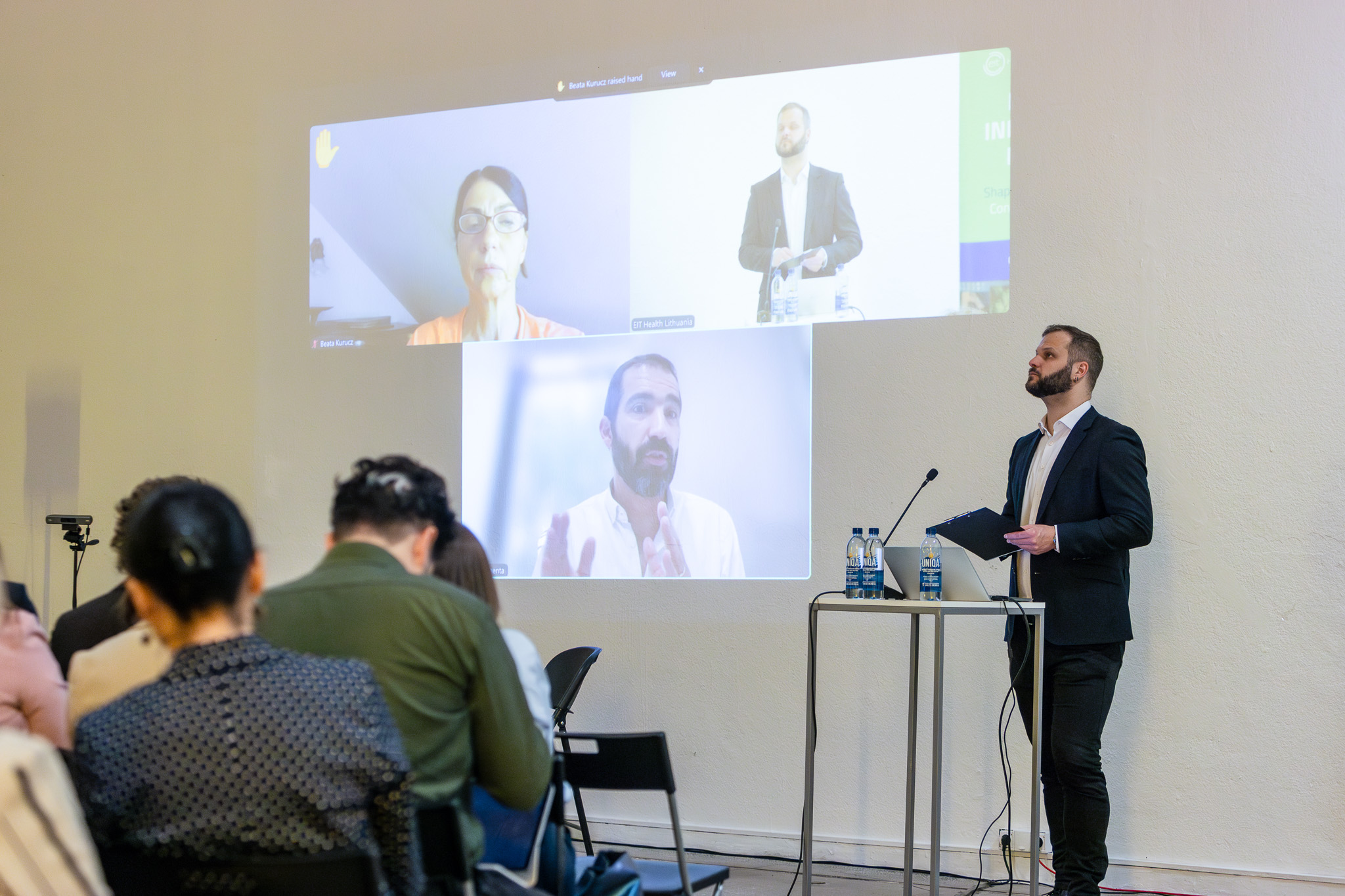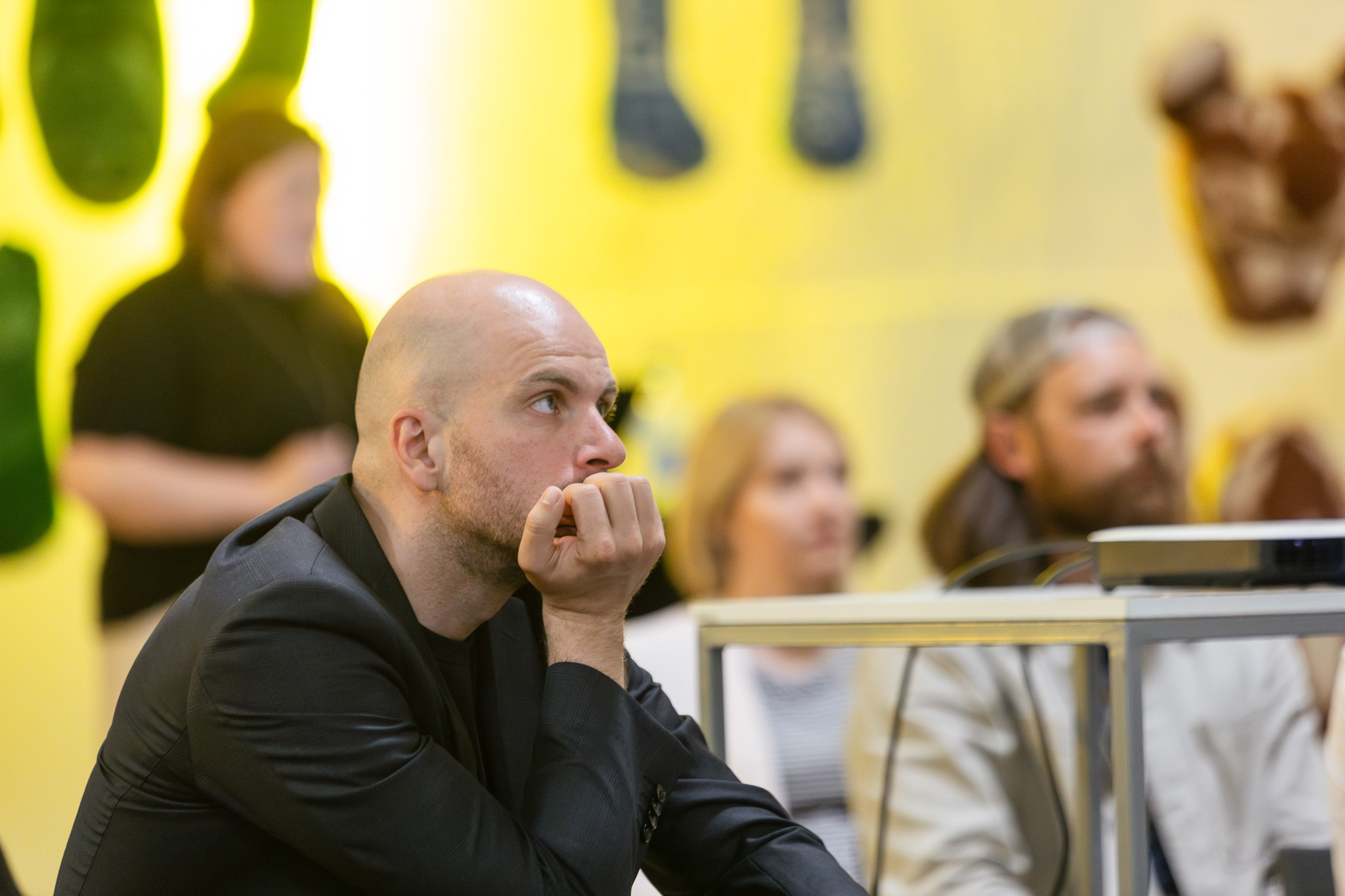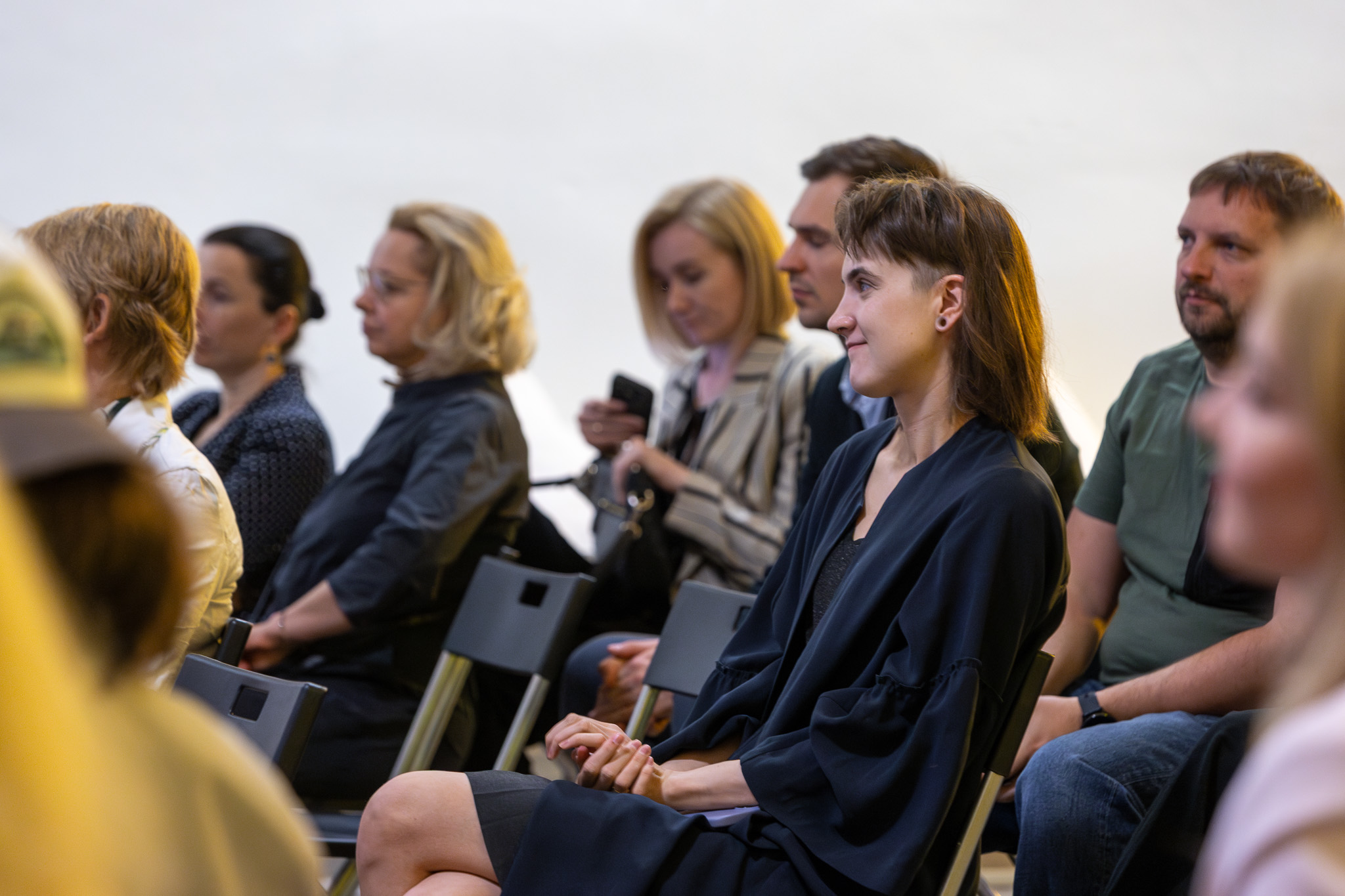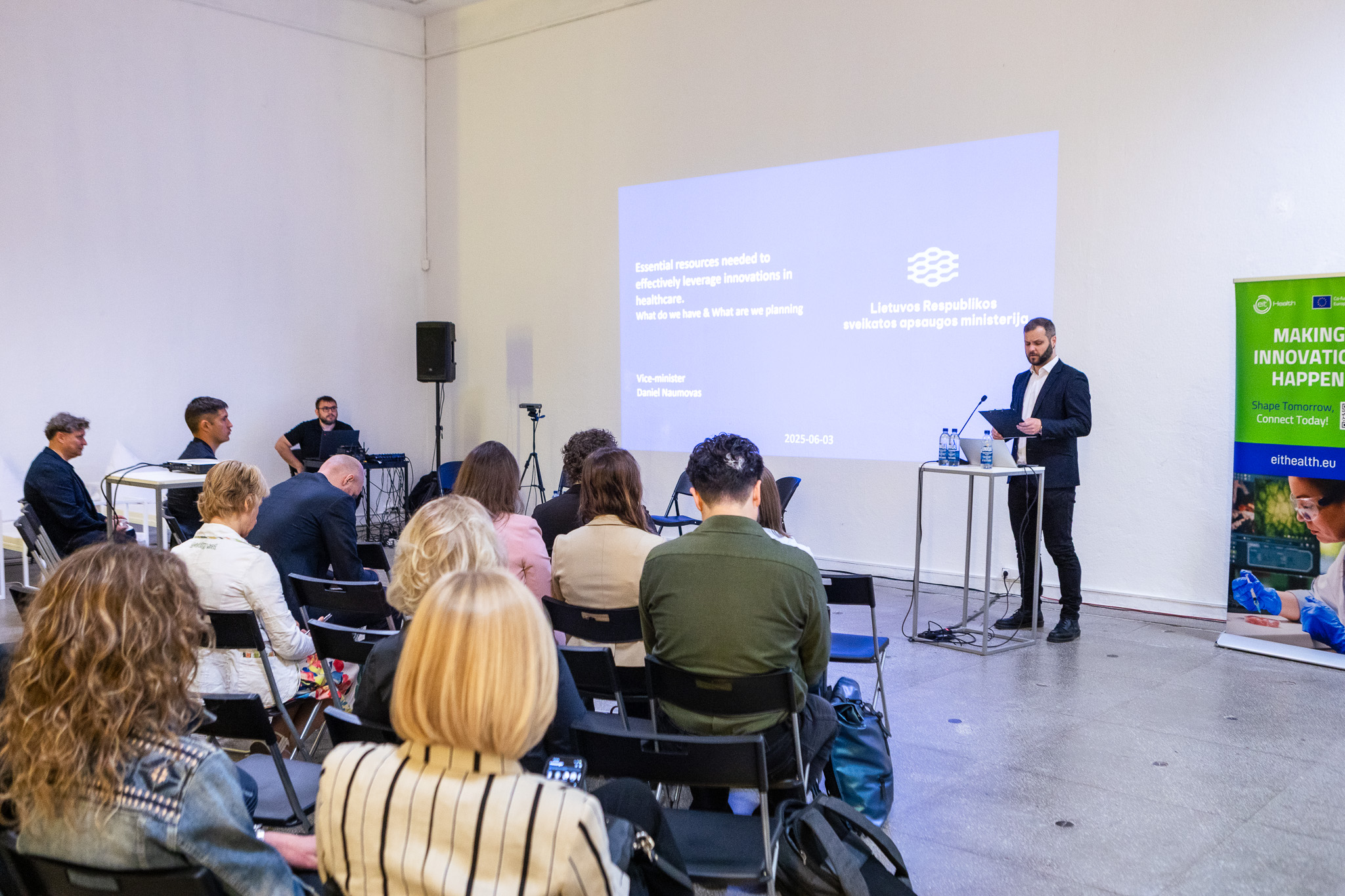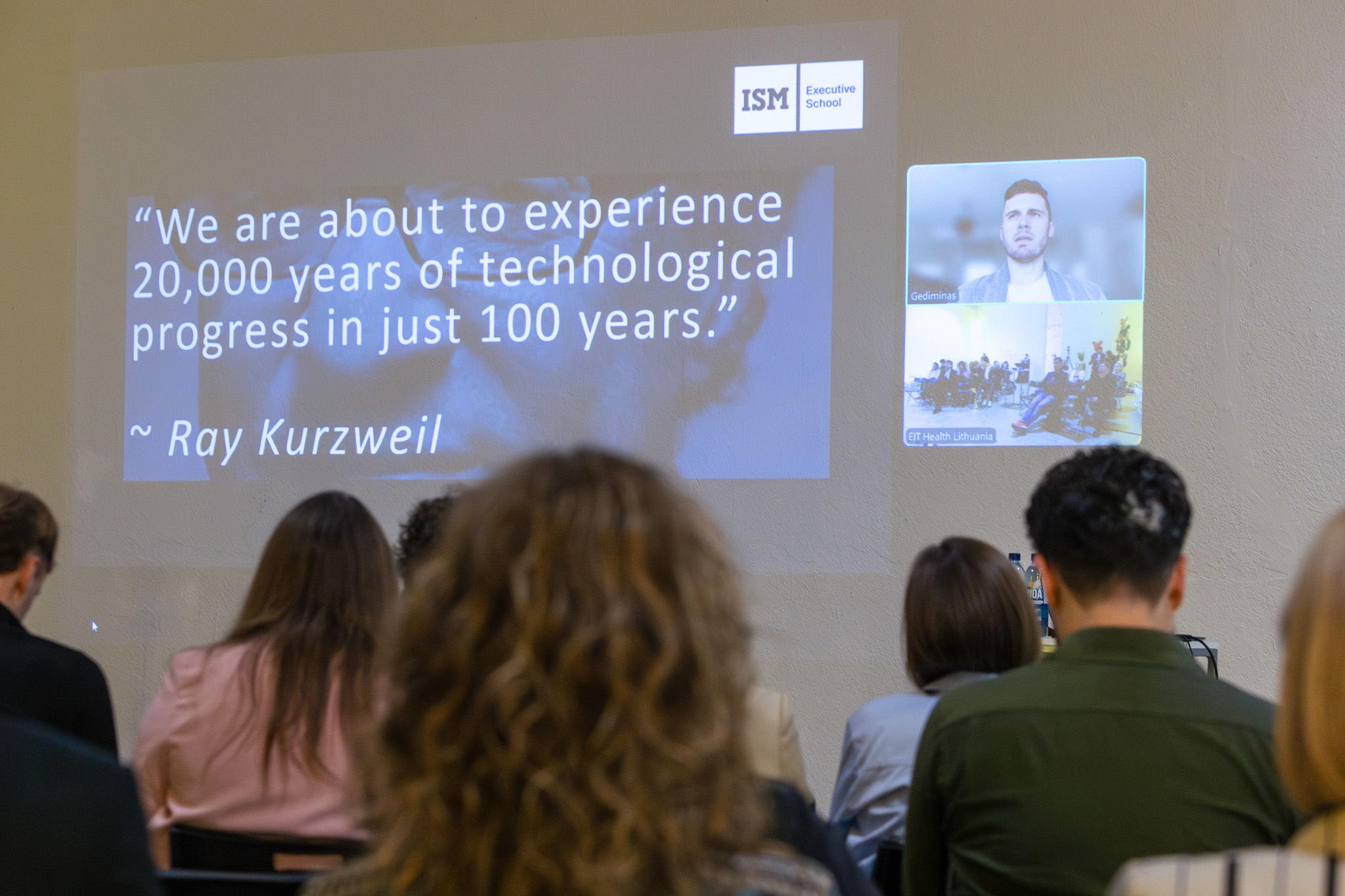„Culture Eats Innovation for Breakfast“ – In Kaunas, Health Innovation Ecosystem Leaders Discussed Why Breakthroughs Are Driven Not by Technology, but by People
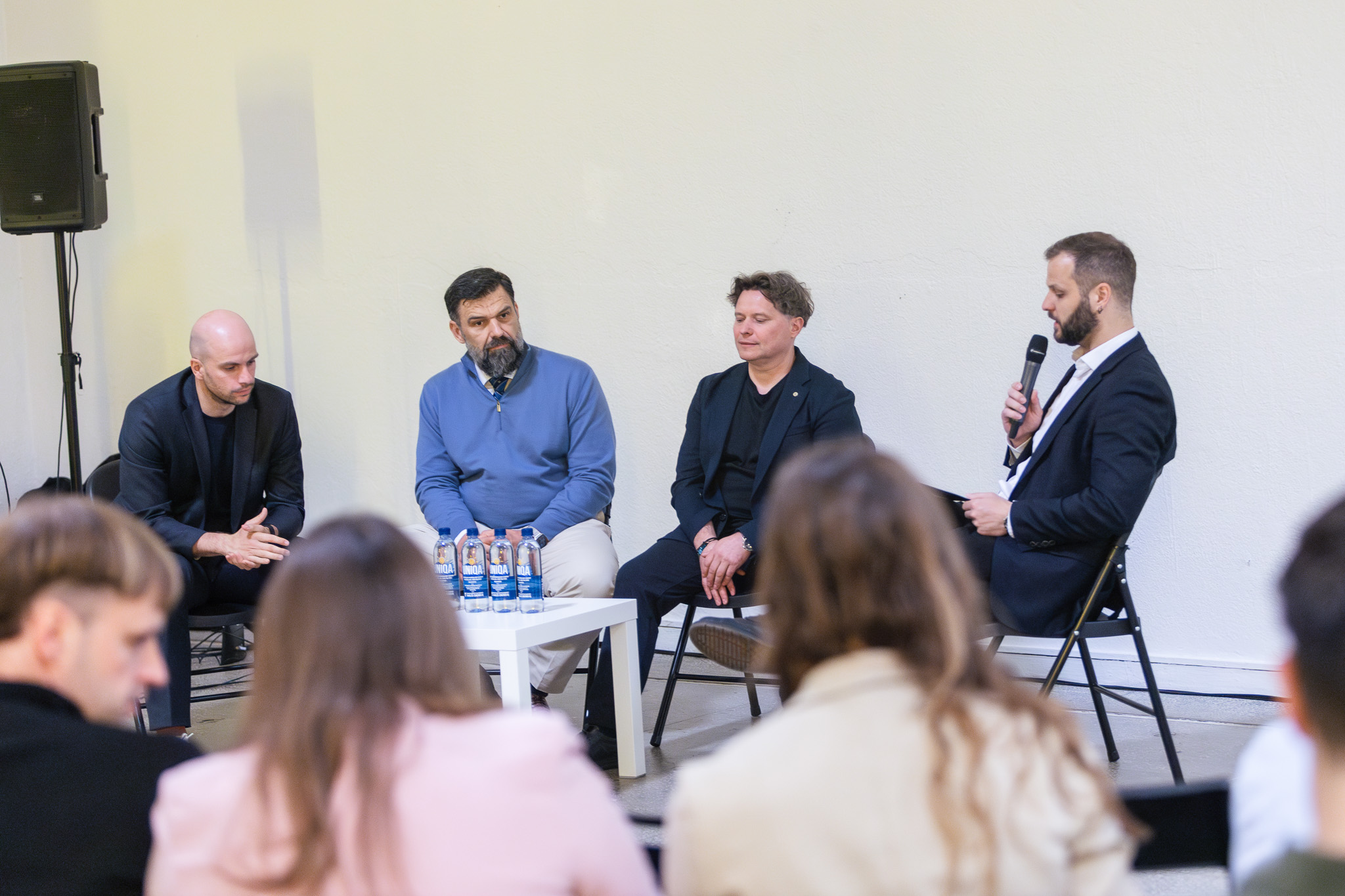
“Innovation fails not because of a lack of technology or funding – it fails because of culture.” This statement resonated during EIT Health’s “Morning Health Talks” in Kaunas, organized by the LSMU Health Innovation Development Center, KTU Startup Space, LSMU Hospital Kauno Klinikos, and the VDU Entrepreneurship Competence Development Center MINDED.
Held at the Kaunas Picture Gallery, the event brought together stakeholders from across Lithuania and Europe’s health innovation ecosystem – from the public sector to investors, technologists to educators, and startup founders. The core discussion wasn’t about the power of finance or technology, but their limitations in the absence of cultural foundations, openness to failure, and a deep human “why”.
The topic was both provocative and precise: “Culture Eats Innovation for Breakfast: Why Mindset Shifts Matter More Than Tech.” As it turned out, this wasn’t just rhetoric – it reflected a real issue that hinders progress even where we have the brains, data, and ideas.
Culture as the Foundation of Innovation
The first speaker, digitization and AI expert Gediminas Buivydas, stressed that innovation without culture is ineffective. According to him, 90% of digital transformation challenges are rooted in human, not technological, factors: “Innovation fails not because of technology – it fails because of culture. If we don’t have a clear answer to why we want to change, no innovation will succeed.”
He outlined how to cultivate an organization’s innovation capability – from assessing digital maturity to developing experimental projects. Too many organizations rush to the question “what will we do?” instead of starting with “why does this matter?” Buivydas emphasized that meaningful change must be embraced by employees, and conscious leadership is essential: “When leadership can’t answer the ‘why,’ culture eats all strategies before breakfast.” Innovation requires not only tech but inner courage: “Don’t wait six months – start testing tomorrow.”
Talent Exists in Lithuania, Culture Still Lags Behind
Vice Minister of Health Daniel Naumovas highlighted that even small initiatives can spark big changes. Lithuania, though lacking natural resources, should rely on its talented people and their knowledge: “The people in this room can be the seeds of future innovation.”
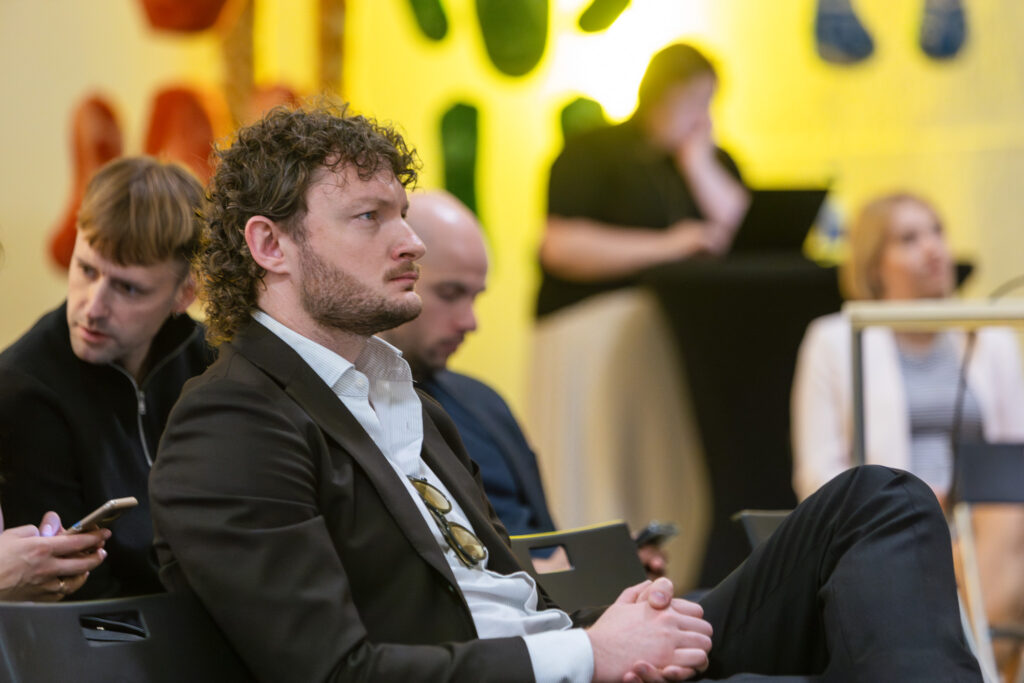
He noted existing challenges: while Lithuania boasts strong scientists, an ambitious biotech vision, and modern hospitals, progress is often hampered by excessive bureaucracy, institutional communication gaps, and unclear cooperation mechanisms. He stressed the need for a balanced, transparent approach that fosters rather than hinders collaboration.
A particularly important message: data must be used for patient benefit. Otherwise, it’s not only inefficient but ethically questionable. He also emphasized the need to shift from passive spending to active investment in public health funding.
Naumovas celebrated that, for the first time in national history, the Ministry of Health has made innovation a strategic priority – a clear signal of Lithuania’s commitment to building a knowledge- and data-driven health system.
Technology Born from Empathy
Equally inspiring was Mike Hazlewood, technologist and co-founder of the startup SensePilot, whose presentation demonstrated that breakthroughs stem from values and empathy rather than tech.
“Innovation shouldn’t start with ‘what can we create?’ It should start with ‘who needs this?'” Hazlewood introduced a solution that allows people with severe disabilities to control a computer using only facial muscles.
This innovation didn’t arise from market demand, but from a cultural awareness that technology must be accessible to all – especially the marginalized. “SensePilot started as a hackathon experiment – a safe space to fail and learn. We continued because we saw real, life-changing value.”
He also highlighted the importance of privacy and dignity: “Our system works offline, locally – it’s faster, safer, and more respectful. Technology can be sensitive – if we choose to make it so.”
The Portuguese Experience: Community Over Capital
Jorge Pimenta, Innovation Director at Portugal’s Instituto Pedro Nunes (IPN), shared how to build a sustainable innovation culture even in smaller cities. Based in Coimbra, a city of just 150,000, IPN has grown into one of Portugal’s top health tech hubs.
The key, according to Pimenta, is long-term collaboration between universities, startups, the public sector, and healthcare providers: “You can have the best AI solution, but if the health system doesn’t want or understand it – it’s just a PowerPoint slide.”
He emphasized community: collaboration is a two-way street. IPN hosts hackathons, idea workshops, student internships, and mentorship programs – cultivating innovators early on.
This model is highly relevant for Lithuania, showing that even small cities can become innovation leaders with the right strategy, strong cross-sector ties, and a cooperation-based ecosystem.
Lithuania Has Everything It Needs – Except a Shared Vision and Structured Collaboration
In the second part of the event, guests listened to a discussion among experts from three different fields on how to create a sustainable and collaboration-based health innovation ecosystem in Lithuania. Moderator Edvinas Grauželis emphasized: “The question is simple – what can we do so that a year from now we have a clearer innovation direction in the health sector in Lithuania?”
Antanas Montvila, Head of the Innovation Evaluation and Implementation Unit at LSMU Hospital Kauno Klinikos, pointed out that the role of the healthcare sector in innovation needs to be clearly defined. According to him, healthcare institutions are not startup accelerators: “Our primary task is to provide services. Our goal is to ensure that the best, validated technologies reach people as quickly as possible.” He also emphasized that Lithuania still lacks a mature innovation ecosystem: “We are still a fairly young community, especially in the field of health innovation, and somewhat fragmented.”
Paulius Vilemas, founder and CEO of Energenas Group, co-founder of LitBAN, and Investment Director at Sofigama, stressed the importance of a systemic approach and the relevance of international examples. He stated that in Lithuania, the concept of innovation is often misunderstood: “The goal of healthcare institutions is not to create innovations. Their goal is to treat using approved methods.” According to him, effective innovation only arises when there is a clear structure between academic institutions, healthcare providers, and business: “The US and Israel set a good example – there, innovation comes from universities, but hospitals help test, validate, and use the data.”
He also observed that the health sector may soon undergo a fundamental shift: “We are living in a turning-point era – the kind of medicine we’ve known so far has run its course. A new era is coming – based on data and prevention.” Paulius emphasized that Lithuania’s advantage as a small country is the ability to quickly test and implement new models: “If we move fast, we can export an entire innovative healthcare system model to larger, slower-moving countries like Germany or France.”
Osvaldas Stripeikis, Head of the MINDED Entrepreneurship Competence Development Center at VDU, spoke about the deeper – cultural and value-driven – side of innovation. He reminded the audience that true breakthroughs are born where knowledge, emotion, and practice converge: “Three things give birth to innovation – the heart, the mind, and the hands. If we start only from ideas without meaning, it becomes very dry. And meaning – that’s a human quality that artificial intelligence will never create.” According to him, technical solutions alone are not enough – systemic thinking is needed, and that comes only through experience: “Innovation is a new solution to an existing problem. To find it, you must be part of the sector and understand its pain points.”
At the end of the discussion, the moderator asked all participants to answer what they would do in the next three months to make Lithuania’s innovation direction clearer. A. Montvila identified a very specific step: “We will continue working on the implementation of the open health data standard OpenEHR. We have already started piloting it in our hospital – and this will be the foundation upon which we can build other innovations.” P. Vilemas emphasized that the most important thing is to demonstrate demand: “If people start demanding innovative treatment, the system will have to respond.” O. Stripeikis, in turn, raised the question of what could become the “gluing element” of the ecosystem: “We have innovators, we have competencies – but we lack something that would unite everyone into one vision. Could it be a university? Could it be business? This is the question we are still trying to answer.”
Watch the full recording of EIT Health Morning Health Talks HERE.
About “Morning Health Talks”
Morning Health Talks is a series of events initiated by EIT Health to promote healthcare innovation and strengthen cross-sectoral collaboration in Europe’s emerging innovation regions. The goals: spark innovation, enable networking, and spread best practices.
About “EIT Health”
EIT Health is Europe’s leading health innovation network, supported by the European Institute of Innovation and Technology (EIT). It unites around 120 partners across borders to help Europeans live longer, healthier lives. EIT Health has already supported over 2,500 startups, helped raise €1.9B in investment, launched 113 health solutions to market, and trained 49,000 students and professionals. More: www.eithealth.eu
EIT Health activities in Lithuania are coordinated by the Lithuanian University of Health Sciences (LSMU) and Kaunas University of Technology (KTU) since the 2018 establishment of the EIT Health Hub. The goal: to build a community where patients, innovators, and experts work together for more accessible, efficient, and people-centered healthcare.
About EIT Health InnoStars
InnoStars is one of eight regional clusters of EIT Health. It includes countries labeled “moderate innovators” by the European Innovation Scoreboard: Poland, Hungary, Italy, Portugal, the Baltic States, Croatia, Slovakia, Czechia, Slovenia, Greece, and Romania. InnoStars supports innovation in healthcare, healthy living, and active aging while bridging the gap between advanced and developing regions.

